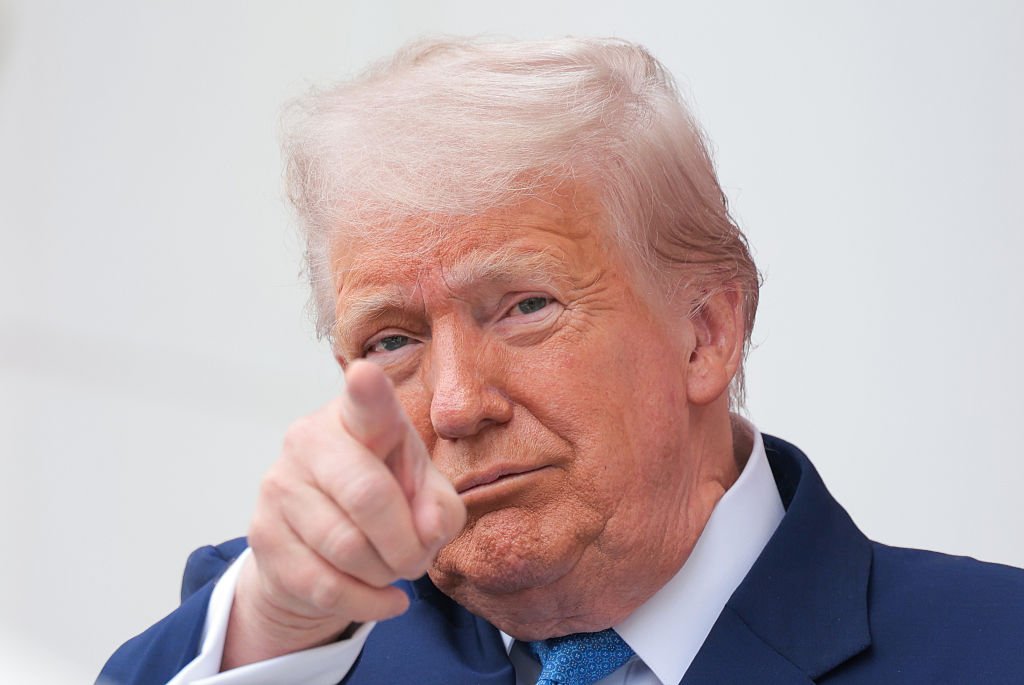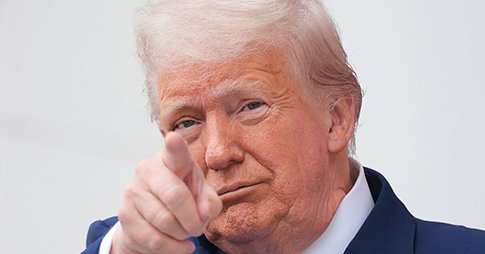President Donald Trump is no stranger to throwing punches during press conferences — but on May 28, it was a reporter who landed the first job.
And Trump didn’t take it lightly.
Now well into his second term, Trump has moved swiftly to issue a wave of executive orders and impose controversial tariffs on countries worldwide.
His bold actions rattled the stock markets, affecting major U.S. companies like Walmart and Apple. While Wall Street initially took a hit, the markets have since rebounded — and traders have coined a cheeky nickname to explain the turnaround.
It’s a nickname that Trump reportedly didn’t find amusing.
“Trump Always Chickens Out”
During a live White House press conference on May 28, CNBC reporter Megan Casella confronted Trump with a blunt question:
“They’re saying ‘Trump Always Chickens Out’ on the tariff threats, and that’s why markets are up this week. What’s your response to that?”
The phrase — shortened to the acronym T.A.C.O. — was originally coined by Financial Times journalist Robert Armstrong in a May 2 column. It satirizes Trump’s pattern of issuing bold tariff threats, only to later delay or scale them back.

Backing Off Tariffs and Brushing Off Critics
One recent example of Trump’s backpedaling came when he delayed a planned 50% tariff on EU imports, originally set for June 1, pushing it to July 9. The move bought time for negotiations — and gave the markets room to recover.
Another instance occurred on May 12, when Trump paused a proposed 145% tariff on Chinese goods, opting instead for a 90-day freeze that helped calm investor nerves.
“A Nasty Question”
But the president didn’t find the humor in the T.A.C.O. nickname — short for “Trump Always Chickens Out.”
When CNBC reporter Megan Casella brought it up during a May 28 White House press conference, Trump seemed confused at first.
“I kick out?” he asked.
“Chicken out,” Casella clarified.
“I’ve never heard that,” Trump replied — before his tone turned sharp.
“You ask a nasty question like that,” he snapped. “It’s called negotiation. You set a number… If I set a number ridiculously high, I go down a little, they want me to hold that number. 145% tariff.”
He continued, visibly frustrated: “We were doing no business because the tariff was so high. I knew that. But don’t ever say what you said. That’s a nasty question.”
Then came a broader swipe: “Six months ago, this country was stone-cold dead. People didn’t think it would survive. And you ask a nasty question like that?”
And he wasn’t finished.
“Don’t ever say what you said. That’s a nasty question,” he repeated.
“Get Yourself a Real Job”
If anyone expected Trump’s second term to come with fewer media clashes, they were mistaken. In fact, his tolerance for critical questions appears even thinner.
On May 20, during an appearance on Capitol Hill, a journalist from the nonprofit outlet NOTUS asked him about comments from Rep. Andy Harris, who had criticized Trump’s handling of a key legislative vote.
Trump brushed it off with characteristic disdain: “Who? I don’t even know what the hell that is. Get yourself a real job.”
His message was clear: tough questions are still met with tough pushback — or outright dismissal.







